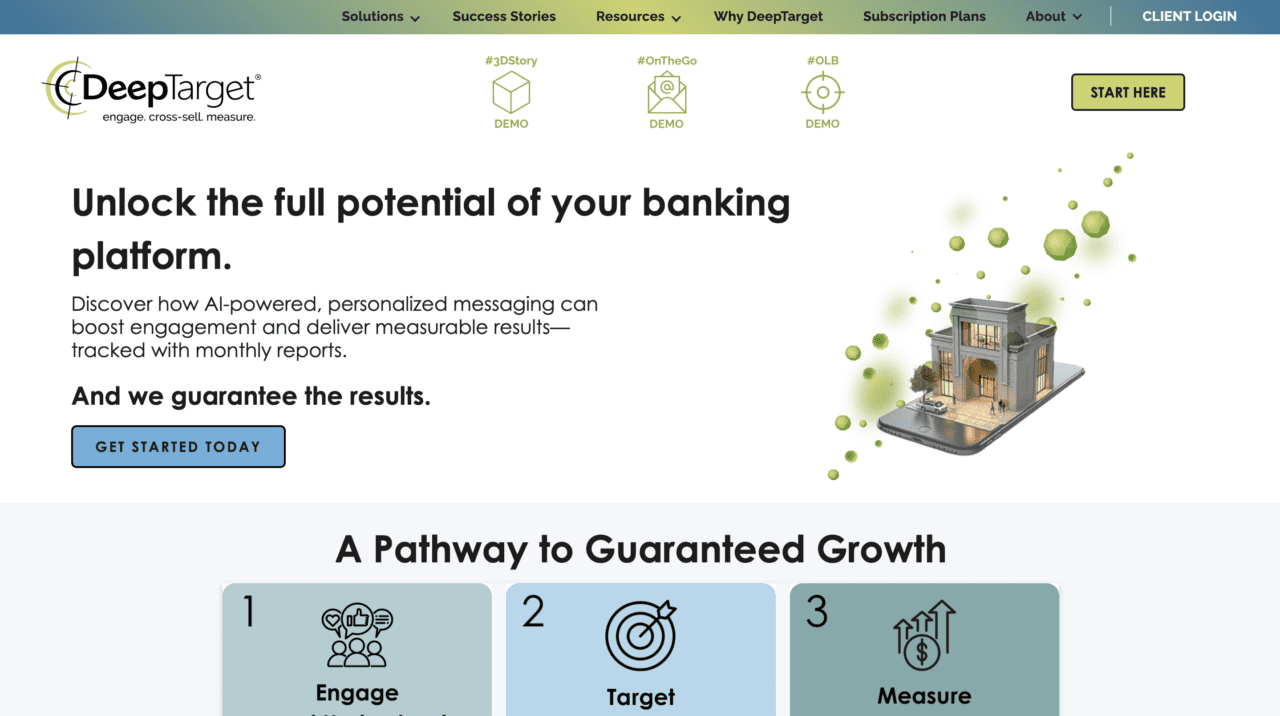
- DeepTarget, a digital marketing services provider for financial institutions, has launched its AI-powered email service AImail.
- The new offering empowers community banks and credit unions with enterprise-level marketing capabilities to enable them to deliver personalized communications at scale.
- DeepTarget made its Finovate debut at our all-digital conference FinovateWest 2020. The company is headquartered in Huntsville, Alabama.
DeepTarget unveiled its AI-powered email service, AImail, this week. The technology is a full-service solution that provides credit unions and community banks with enterprise-level marketing services to deliver personalized communications at scale.
In a statement, the company highlighted the fact that email remains an important channel of communications between financial institutions and their customers. Email remains the most cost-effective channel for most FIs, helping them reach account holders who may not frequent a brick-and-mortar branch or take advantage of digital banking. At the same time, many community banks and credit unions have struggled to maximize email as a communications channel due to resource challenges, regulatory issues, or inadequate data analysis capabilities.
“While new channels emerge constantly, email remains the most universal and trusted way to reach account holders,” DeepTarget CEO Preetha Pulusani said. “Nearly every adult with a bank account has an email address, and not all of them visit branches or use digital banking. They expect to receive important financial communications through this channel.”

To this end, AImail combines AI technology with deep financial services expertise in the form of fractional digital marketing experts. This enables AImail to deliver compliant personalization and regulator-friendly content, as well as targeted optimization to ensure that marketing campaigns reach the best audiences for maximum impact. AImail embeds banner ads in each email campaign that use GenAI images and messages created by DeepTarget’s ADbuzz technology to enhance engagement. The solution streamlines marketing campaigns, boosting email engagement rates by up to 3x, and provides valuable metrics including built-in ROI tracking and reporting.
“What makes AImail revolutionary is its ability to transform these routine touchpoints into meaningful, personalized conversations that drive engagement and growth,” Pulusani said. “What used to take marketing teams weeks to accomplish now happens with our experts using AImail on behalf of financial institutions, with robust results and strong compliance controls.”
Founded in 2009 and headquartered in Huntsville, Alabama, DeepTarget made its Finovate debut at our all-digital conference, FinovateWest2020. At the event, the company demonstrated its 3DStoryTeller solution. 3DStoryTeller blends the intelligence and capabilities of the company’s Digital Experience Platform with a 3D user interface that enables financial institutions to offer a unique experience featuring visual stories that engage and entertain customers.











